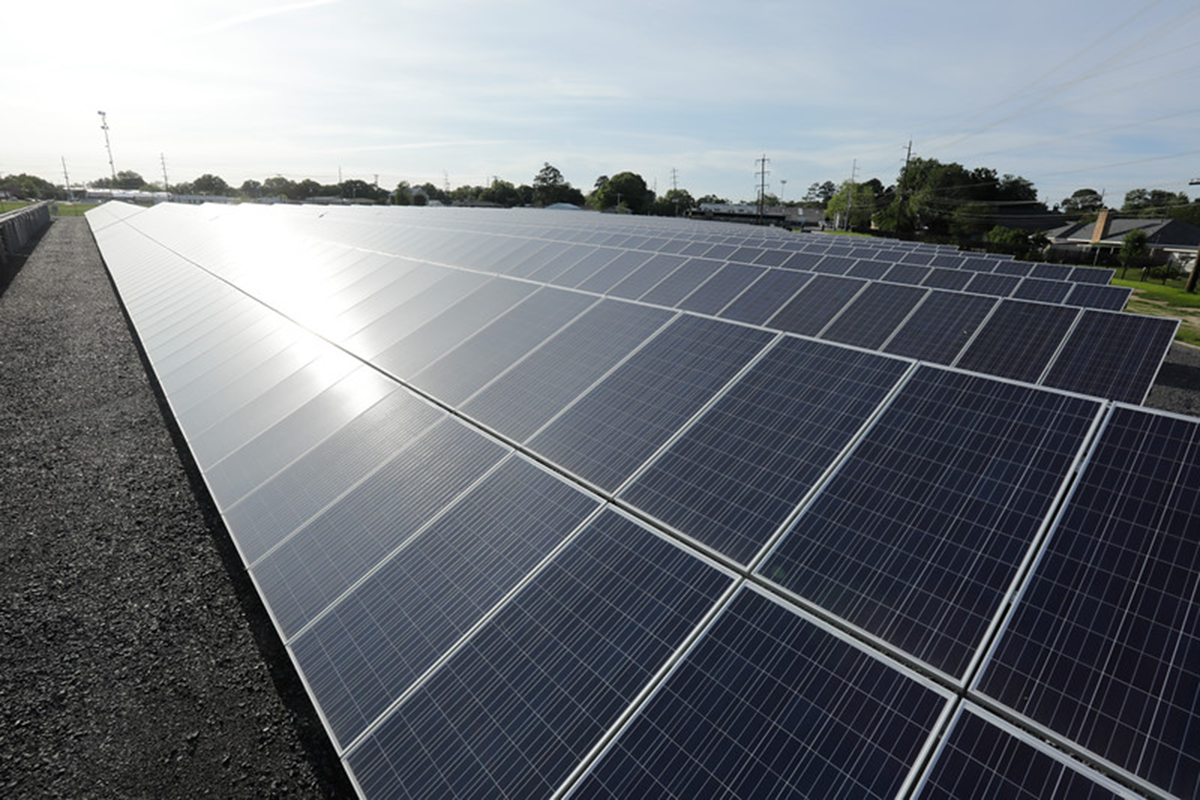The University of Louisiana at Lafayette is among 12 entities across the country – and the only university – selected for a $13.5 million U.S. Department of Energy initiative designed to expand the solar energy workforce and create jobs in underrepresented communities.
UL Lafayette earned a $1 million grant from the DOE’s Solar Energy Technologies Office, which supports solar energy research and development. Other grants awarded as part of the initiative went to industry, tribal organizations, unions, a community college system and state and local governments.
The University’s role? To lead a statewide effort that will establish Louisiana Solar Corps, a solar workforce training and apprenticeship program. The program will facilitate the creation of new degree programs at four universities and five community colleges, including historically Black colleges and universities.
The project will involve collaboration with a range of stakeholders that include other colleges and universities, industry, government, and nonprofit organizations, said Dr. Terrence Chambers. A professor in the Department of Mechanical Engineering, Chambers directs the University’s Energy Efficiency and Sustainable Energy Center and is principal investigator for the workforce project.
“We’re assembling a team to build out a solar workforce training program, a statewide network. The University has been working to grow the solar industry in Louisiana for over a decade, and the point of this initiative is to expand those efforts throughout the state,” Chambers said.
A primary objective of the Louisiana Solar Corps project will be to train workers to install a network of “solar plus battery microgrids” that will generate backup power during outages.
The microgrids will be installed at places such as National Guard bases, public buildings, churches and restaurants; UL Lafayette will coordinate training of workers who will carry out the installations. The workers will live in the areas where the microgrids will be placed.
“The microgrids will – after a hurricane, for instance – serve communities by assisting first responders and providing spots where there would be power and people could get food and water, cool off, or charge cell phones,” Chambers explained.
“Along with providing a local workforce for installation, the intent is to help the people who have received training land internships with solar companies and then, hopefully, permanent jobs,” he added.
As a national leader in both sustainable and traditional energy technologies, the University is well-positioned to lead the Louisiana Solar Corps project.
It owns and operates one of the largest outdoor solar testing facilities in the southeastern United States, a 4,200-panel solar field. In addition, finishing touches are being put on the University’s Louisiana Solar Energy Lab. The 4,500-square-foot building, which stands beside the solar field at University Research Park, is expected to officially open later this year.
Together, the solar field and lab make the University a hub for solar research, technology development, instruction, training, outreach and workforce development. The Louisiana Solar Corps initiative is a prime example of those capabilities, Chambers said.
Training conducted as part of the initiative, he added, will encompass several different pathways. That includes an apprenticeship program with on-the-job training for workers who will “earn as they learn.” The training wouldn’t result in a degree, but would enable participants to advance from apprentice to journeyman status in their fields.
Other pathways will include two-year programs through community colleges and four-year programs through larger colleges and universities.
“Our solar facilities and the collective expertise of our faculty members and researchers will enable us to train faculty members at other colleges and universities. We’ll also develop open source curricula that will enable them set up their own solar programs,” Chambers said.
Photo caption: The U.S. Department of Energy has selected UL Lafayette to lead a statewide initiative designed to expand the solar energy workforce in underrepresented communities and create jobs. Photo credit: Doug Dugas / University of Louisiana at Lafayette
